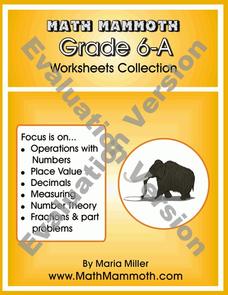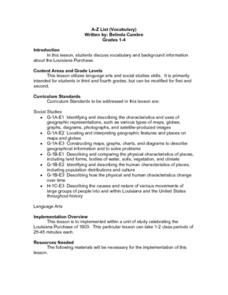Curated OER
Smiling at Two Digit Multiplication!
How do I solve a two-digit multiplication problem? Your class tackles this question by walking through problem solving methods. They first investigates and applies traditional multiplication methods, and they then compare those with...
Curated OER
ADULT ESOL LESSON PLAN--Level 5--Consumer Education
Students focus on identifying the differences between automobile, property, and health insurances. They also review the different cost for each and view a variety of brochures. In addition, they chart their findings to visualize all...
Curated OER
A Famine Glossary
In this history of Ireland worksheet, students match eleven words from a word bank with their definitions. They finish a chart comparing their diet with that of a poor person from Ireland in 1845. Students write answers to 5 essay...
Curated OER
Simple Past-Positive Sentences #2
In this simple past tense worksheet, students use words and phrases given to form positive sentences in the given tense. Answers may be submitted online for review. ESL appropriate but not exclusive.
Curated OER
A-Z List
Students practice using vocabulary terms about the Louisiana Purchase by creating a picture dictionary, an ABC book of terms, a word sort, or a game. Each project should include people, places and terms as they relate to the Louisiana...
Ahisma Summer Institute
The Power of One - Math in a Different Angle
In this 2-day lesson focused on exponents, middle schoolers will cross the curriculum by engaging in science, history and language arts activities. Exponential growth will be explored using grains of rice on a chess board. Exponential...
Curated OER
Is the Hudson River Too Salty to Drink?
Students explore reasons for varied salinity in bodies of water. In this geographical inquiry lesson, students use a variety of visual and written information including maps, data tables, and graphs, to form a hypothesis as to why the...






